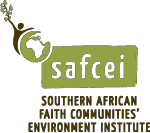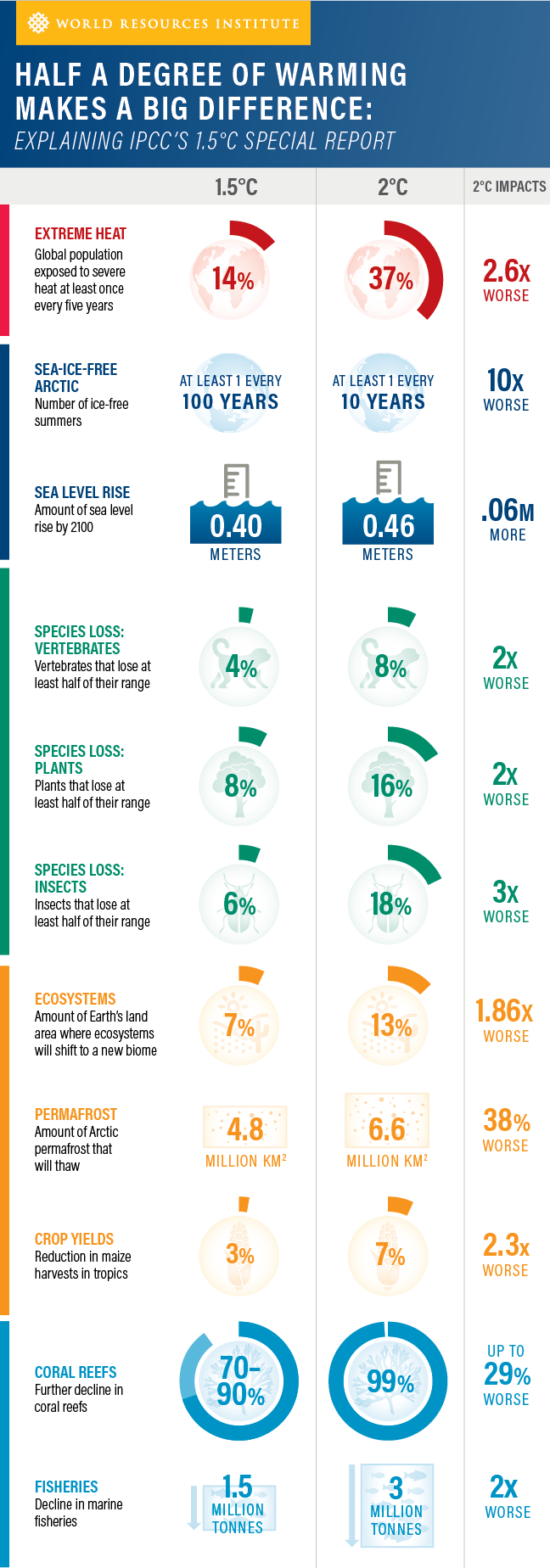IPCC Climate Change 1,5 degree report
- Published:



WESTERN CAPE MEMBERSHIP
22 October 2018
Sir / Madam
You may well have read the latest Intergovernmental Panel on Climate Change (IPCC) report that focuses on the differences between a 1.5 and 2 degree global warming future climate scenario. It’s available at: www.ipcc.ch/report/sr15/
The main points of the report, based on 6000 scientific papers and approved by all of the world’s 195 sovereign states, include:
- Though separated by only half a degree centigrade, the two temperature scenarios are very different, with the warmer one, in many ways, almost twice as severe and destructive as the other.
- At the current rate of emissions and warming produced by humans, we have only 12 years to avert a 2 degree and more, warmer world. It has taken more than 100 years to rise by 1 degree due to global industrialisation.
- While almost all world governments agree, as they did at the Paris Climate Conference in 2015, that everything possible should be done to limit warming to 1.5 degrees, current commitments and policy decisions, including South Africa, are more consistent with 3 degrees warming, which is a disastrous scenario.
- Unprecedented changes by government, companies and citizens will be needed to reduce emissions in order to avoid going over 1.5 degrees. These changes are affordable and feasible, and there is no room for delay.
- Record droughts, like the one that saw Cape Town nearly run out of water, hurricanes like Michael and Florence, forest fires such as those that devastated parts of Greece, Portugal, California, Sweden, British Columbia, England and Australia, make it clear that the impacts of climate change at 1 degrees are already being felt.
- Every fraction of additional warming will worsen the situation for people and other life.
- If we adhere to 1.5C as the highest limit of warming, there will be many less people and environmental impacts:
- 50% fewer people would be exposed to water stress;
- Food scarcity would be much less of a problem and hundreds of millions fewer people, particularly in poor countries, would be at risk of climate-related poverty.
- At 2C, extremely hot days, such as those experienced in the northern hemisphere this summer, would become more severe and common, increasing heat-related deaths and causing more forest fires.
The greatest difference of a 2°C increase would be to nature:
- Insects, which are vital for the pollination of crops, and plants, are almost twice as likely to lose half their habitat at 2°C compared with 1.5°C.
- Corals (of huge economic and environmental importance) would be 99% lost at the higher temperature, but more than 10% have a chance of surviving at 1.5 degrees.
- Sea level rise would affect 10 million more people directly at 2 degrees.
- Sea fisheries would lose 3 million tonnes per annum, twice the amount at 1.5 degrees.
Mapping the way forward, the IPCC report recommends different options in various combinations to restrict warming to 1.5 degrees such as:
- A carbon pollution (mostly from coal and oil) reduction of 45% by 2030
- High carbon-based fuel costs
- Reforestation
- Shifts to electric transport systems
- Greater adoption of carbon capture technology
- Political will (this depends significantly on the electorate -YOU)
Many researchers see the report as conservative, as it avoids topics like climate refugees and the cumulative impact of natural feedback loops and tipping points that would make problems a lot worse.
We trust that your agency, department, group, community or institution will work with the information provided in the latest IPCC report and do your utmost to contribute to the goal of restricting further warming to 1.5 degrees centigrade. This is in line with our country’s international commitments to the Paris Agreement and the Sustainable Development Goals, and in the best interests of our people, humanity and the living world.
Debra Roberts, co-chair of the IPCC working group on impacts said:
“This is the largest clarion bell from the science community and I hope it mobilises people and dents the mood of complacency.”
As people of faith, not only is there a scientific and economic necessity to address climate change, but also a moral and spiritual imperative to take action and provide leadership on this threat to humanity
It would be appreciated if you could respond to this letter with some indication of actions you propose to initiate or continue with to confront complacency.
Patrick Dowling
WESSA Membership Western Cape 0849661249
Francesca de Gasparis Executive Director SAFCEI
021 701 8145
Glen Tyler
350.org South Africa
South African Team Leader 071 645 7946

Who we are

SAFCEI (Southern African Faith Communities’ Environment Institute) is a multi-faith organisation committed to supporting faith leaders and their communities in Southern Africa to increase awareness, understanding and action on eco-justice, sustainable living and climate change.
Featured Articles
-

South Africa: Who Ends Up Paying If DMRE Cooks the Price of Nuclear Power?
-

South Africa’s nuclear energy expansion plans continue to draw criticism, environmental NGOs chew over legal challenge
-

Earthlife Africa and SAFCEI respond to latest unsettling nuclear news regarding the ministerial determination
-

Open Wing Alliance Africa (Virtual) Summit 2023
-

The Green Connection and SAFCEI respond to energy minister's divisive and deflecting comments
-

Job Vacancy: FLEAT Coordinator







